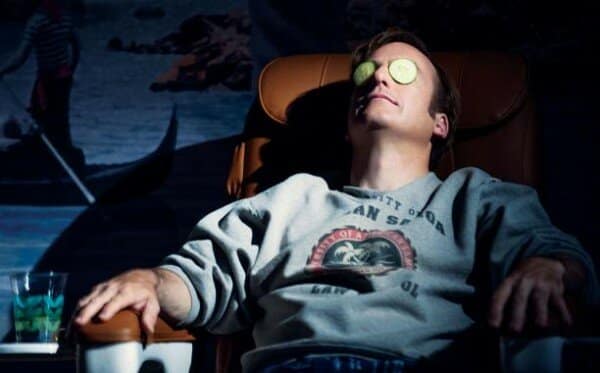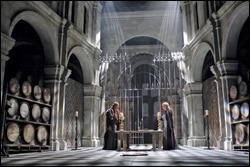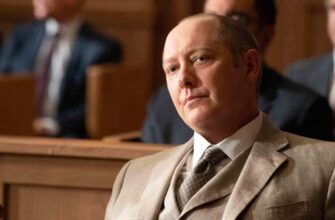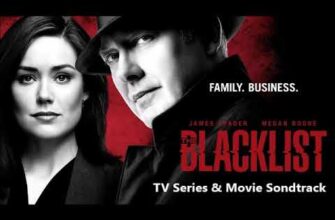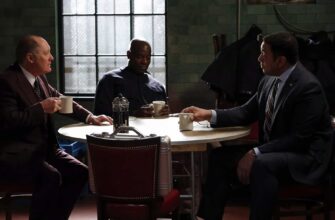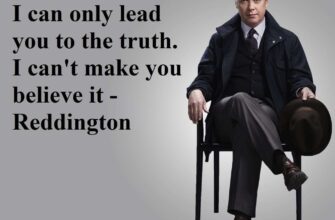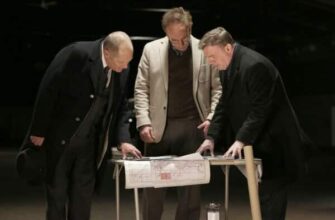Warning: Spoiler Alert
Once the creators of Better Call Saul decided to launch it as an origin story for Saul Goodman, back in his days as a more honorable young attorney still going under his real name of Jimmy McGill, the question of how to differentiate the journey from Walter White’s descent into evil was a paramount one. Through the first three episodes, the elasticity of the timeline, from Jimmy’s early adulthood to post-Breaking Bad, has demonstrated that the man underneath has worn the skin of Jimmy or Saul at various points in life. This contrasts Walter pretty clearly, as his decision to “break bad” and embrace the dark impulses that he likely had all along was a one-way destination with few curves. Jimmy was born with a good heart and his older brother Chuck’s values are a constant reminder of the family’s moral underpinning. But the transformation that Jimmy makes into Saul over the course of this series is the defining one of his life (at least so far, unless the creators subsequently decide to show us any big changes in his life in Omaha), because it’s the one that changes him from sad, struggling, small-time attorney to Albuquerque’s Flashiest CRIMINAL Lawyer.
Another difference between Walter and Jimmy manifests itself in the degree to which each man consciously set out on their path. The ride-along that Walt takes with Hank provides the critical moment in the series when the great scientist realizes that his skill set is perfectly geared towards the cooking of pure methamphetamine. He initiates the partnership with Jesse and turns down that fateful road with clear eyes. As for Jimmy, he had intended to leverage the Kettlemans into dropping the big law firm and signing with him, but the small-time scams that he would occasionally run – often on guilty parties like the Kettlemans anyway – were not enough to send him plunging headlong down the path to becoming Saul. No, a man who ends up where he did requires a more drastic moment of truth than that. But, as we see in Episode 1.4, Hero, the catalyst comes from the decision of an outside party: Betsy Kettleman waving fat stacks of cash in his face in exchange for keeping quiet about her family’s stolen loot.
Just prior to that, however, in the cold open, we get our past-is-prologue moment of the episode as “Slippin’ Jimmy,” back in the day, runs a complicated fraud with a co-conspirator, fleecing folks as greedy as them. The meaning of this scheme is oblique until the last few scenes of the episode.
After the flashback, we’re back in the Kettlemans’ tent, where the parents were alone with their kids, their big bankroll and their fevered delusions of morality prior to Jimmy’s invasion. Betsy’s bribe attempt is parried by Jimmy, who repeats his desire to represent them instead. But he is rebuffed, as the Kettlemans fear looking guilty by hiring “a lawyer like him.” Betsy dangles the green under his snout yet again as the scene concludes without showing his decision.
Back at the courthouse, Jimmy tells Mike that he was right to suspect that the Kettlemans were hiding nearby. It’s clear that Jimmy has a newfound regard for Mike’s capabilities now that he knows his background, but, hilariously, Mike isn’t reciprocating being impressed. We know that he will at some point, however, and by this point we know that there’s going to be a great story involved.
As Jimmy is finalizing Nacho’s release from jail, the criminal is likewise unimpressed with the town’s most colorful attorney. Nacho clearly realizes that Jimmy warned the Kettlemans about the theft attempt and now the police, upset about having to let Nacho go, are going to be watching him closely. Upon being warned that there will be consequences for his big mouth, Jimmy argues weakly that he wasn’t the snitch and states, more persuasively, that Nacho himself is responsible for the legal near-miss based on his sloppiness. However, this beef hasn’t been squashed yet. Stay tuned for more about that one.
Back at the office after hours, rifling through the aforementioned fat stack of cash that he did accept after all and inventing rationales about the services provided to earn the money, Jimmy offers the quote listed in the headline above. His direction, hazy at first, proves to be part of a master plan: a new custom suit and work on his hairstyle. His “friend” Kim, after leaving him a voicemail seeking to have dinner with him, finds out Jimmy’s mischievous plan when her boss Howard drags her to the scene of a new billboard: one that advertises Jimmy’s firm in a complete ripoff of their more successful firm’s trademarks. At Howard’s request, she delivers Jimmy a cease-and-desist letter and friendly advice to back off and not further anger Howard. His flip reply fools her – and the audience – into failing to perceive the depth of his master plan.
As expected, a judge immediately rules against Jimmy and provides a scant 48 hours to remove the billboard. Having failed to get any TV stations out to the billboard to play along with his “David and Goliath” storyline, he hires his own crew and just as he is preparing to finish his pseudo-high-minded rant, he is interrupted when the sight of a dangling billboard worker captures everyone’s attention. Risking life and limb in unbelievable fashion, Jimmy climbs all the way to the top and pulls the man to safety. Suddenly, a man unused to receiving any voicemails on his work line has seven of them after becoming the town’s newest “hero” – hence, the episode title.
Howard sees straight through Jimmy’s stunt and the faint trace of a smile exhibited by Kim indicates that she probably did as well. Still, the thought that Jimmy could have choreographed a stunt this elaborate and death-defying for two people – one of which, of course, was himself – seems too much to believe until he hides the newspaper from his brother Chuck, who knows all of his schemes. Of course, the mere act of failing to bring in Chuck’s newspaper set off the older brother’s suspicions and at the end of the episode, he was crushed to read the newspaper after obtaining one – realizing in an instant exactly what Jimmy resorted to in the pursuit of new business.
“Hero” won’t be soon forgotten by anyone, for the amazing billboard sequence that defined it, nor the series-shaping moment that appeared to represent Jimmy McGill’s crossing of the proverbial Rubicon. It’s a bit funny to think of “Jimmy McGill” getting this kind of publicity in Albuquerque when he was less than half a decade from being known to one and all as Saul Goodman (who, by the way, had his name’s true meaning referenced for the first time on this series and the second time overall including Badger’s “Breaking Bad” testimonial as “’S’all good, man!”). That formal identity change can’t be long in coming because of the timelines that are in play. And for the first time, it feels like we’re close enough to envision the formal end of Jimmy and the beginning of Saul’s adventures. Given that the weakest year in terms of enjoyment for most programs is generally the first one – because of the necessary foundation-building that is occurring to set up the big stories of subsequent seasons – there seems to be no way that this show won’t continue to get even better at that point.
